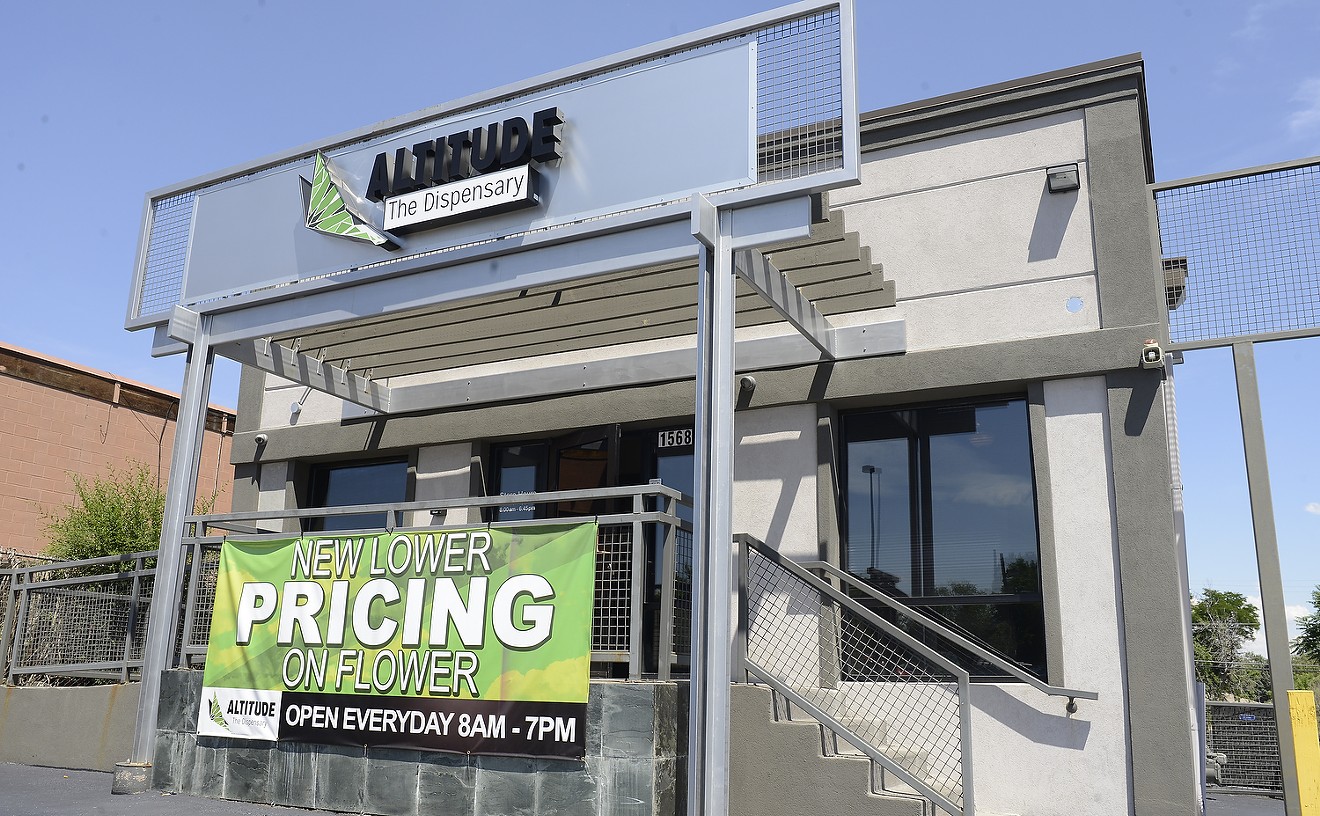Governor Jared Polis has used a new executive authority to automatically pardon 2,732 low-level marijuana possession convictions effective today, October 1.
His authority to do so comes from a new law allowing Colorado's governor to pardon convictions for possession of two ounces of marijuana or less — however, these pardons only cover convictions for one ounce or less. Polis's move automatically pardoned state convictions dating back as far as fifty years and running up through late 2012, when voters approved Amendment 64. Because one person can have multiple marijuana possession convictions, the governor doesn't know the exact number of people he's pardoned, but he estimates it to be "thousands of people."
"It's off their records. If they have a background check at work or want a concealed-weapons permit or a student loan, this will no longer hold anybody back," Polis says. "And it's also symbolically important, because it shows that as a state and nation, we're coming to terms with the incorrect discriminatory laws of the past that penalized people for possession of small amounts of marijuana."
Coloradans over the age of twenty have been legally allowed to possess up to one ounce of marijuana since late 2012, while medical marijuana patients have been able to possess up to two ounces since 2000.
Before this move by the governor, former marijuana offenders whose crimes are now legal had to petition their respective courts for a judge's approval to clear their records. The past convictions will no longer show up on work background checks or those conducted by banks, landlords or other members of the public, but will still appear as a pardoned conviction on law enforcement and state-licensing background checks.
When the law authorizing the governor's power to pardon these convictions passed in June, there were questions about how the process would work, including whether the pardons would be automatic, how the state would gather a list of eligible former offenders and whether local district attorneys would be involved. According to Polis, his staff didn't have to consult local district attorneys or judges to issue the pardons, but collecting the roster of past offenders "wasn't easy," he notes.
"The Colorado Bureau of Investigation searched the Colorado criminal-history database conviction data for all of the convictions," he explains. "The convictions were then reviewed to make sure they occurred in state court, and then eligible convictions were identified based on the conviction data. We were able to then proactively pardon all 2,732 convictions at the same time."
The pardons only apply to convictions handed down in state courts; the governor does not have the authority to clear charges from municipal courts. Anyone who wants to see if they've received a pardon can check a new, state-funded website, comarijuanapardons.com, which is up and running as of today.
"Nobody has to apply," Polis notes.
The first state to legalize recreational marijuana in the country, Colorado has faced criticism for doing little to repair harms done by the War on Drugs, while states newer to retail pot, such as Illinois and Massachusetts, included marijuana expungement and socially equitable business licensing in their legal-marijuana language. Denver and Boulder both set up expungement programs for past low-level marijuana offenders, but those programs required applications and court approval, which resulted in only a small number of applicants and fewer approved expungements.
Since the ACLU estimates that around 4,700 people were arrested for marijuana possession in Colorado in 2018 alone, fewer than 3,000 pardons for marijuana convictions over a span of fifty years may seem like a drop in the bucket. But Polis argues that he can only pardon people who did something that is no longer illegal, and that not all marijuana crimes are equal.
"The way we hold people accountable for the past should reflect the current law," he says. "If there are further changes to laws around marijuana, we would also look to make sure people are not penalized for doing something in the past that's legal today. But obviously, you can't sell marijuana without being an official dispensary.
"There are a lot of guardrails on marijuana, appropriately, just as there are on alcohol and tobacco," Polis concludes, "and if you're violating something that's still illegal, then it not only wouldn't be a pardon, it'd be a charge going forward."
[
{
"name": "Air - MediumRectangle - Inline Content - Mobile Display Size",
"component": "12017618",
"insertPoint": "2",
"requiredCountToDisplay": "2"
},{
"name": "Editor Picks",
"component": "17242653",
"insertPoint": "4",
"requiredCountToDisplay": "1"
},{
"name": "Inline Links",
"component": "18838239",
"insertPoint": "8th",
"startingPoint": 8,
"requiredCountToDisplay": "7",
"maxInsertions": 25
},{
"name": "Air - MediumRectangle - Combo - Inline Content",
"component": "17261320",
"insertPoint": "8th",
"startingPoint": 8,
"requiredCountToDisplay": "7",
"maxInsertions": 25
},{
"name": "Inline Links",
"component": "18838239",
"insertPoint": "8th",
"startingPoint": 12,
"requiredCountToDisplay": "11",
"maxInsertions": 25
},{
"name": "Air - Leaderboard Tower - Combo - Inline Content",
"component": "17261321",
"insertPoint": "8th",
"startingPoint": 12,
"requiredCountToDisplay": "11",
"maxInsertions": 25
}
]












